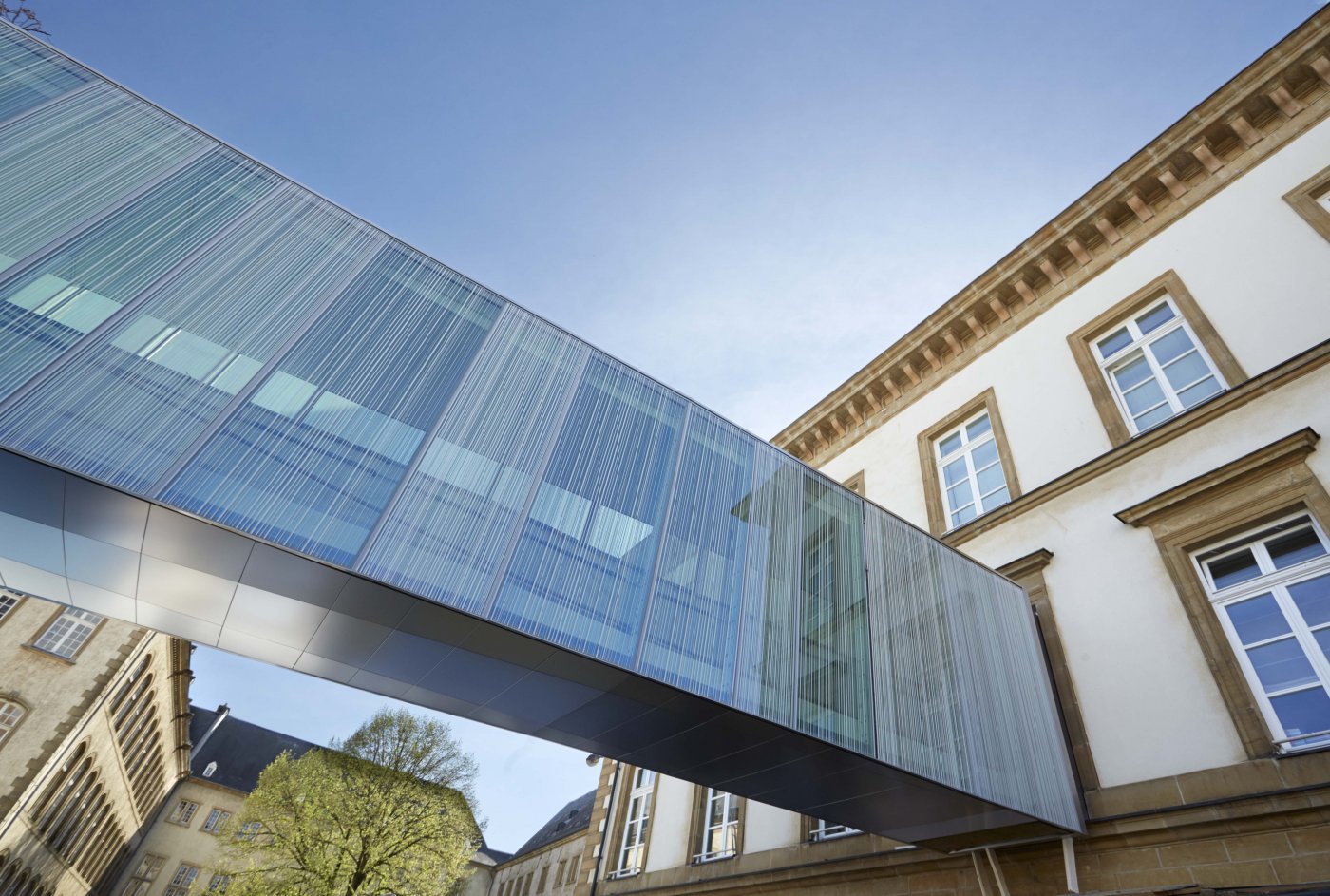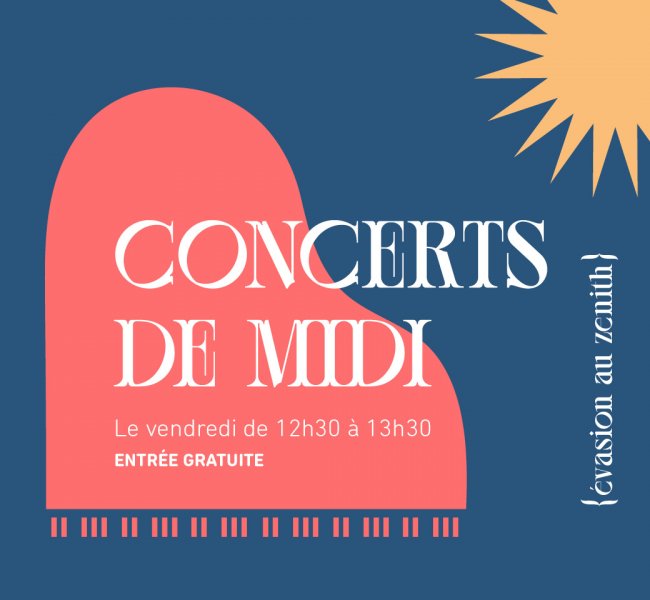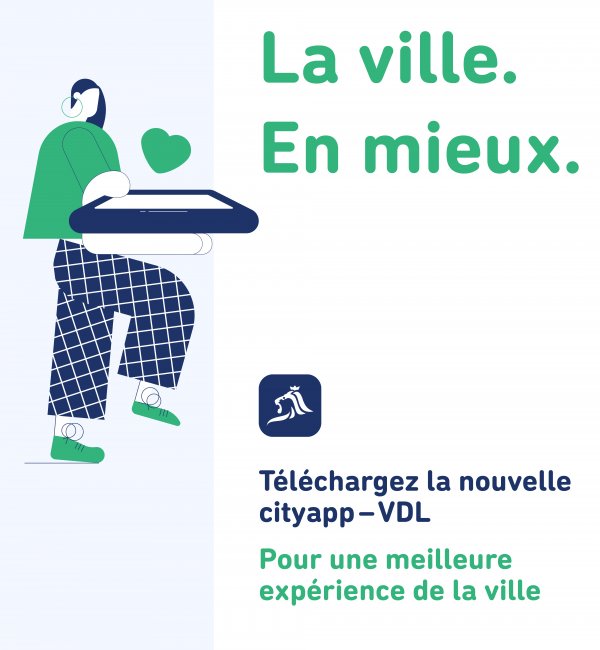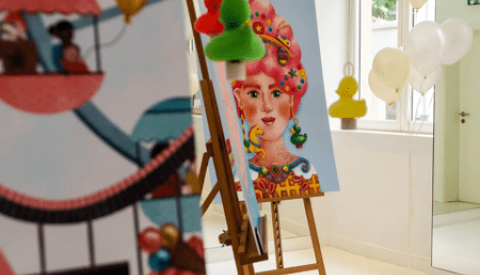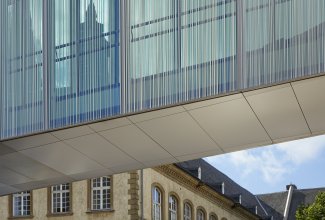Closed session
1. Advisory committees: replacement of members
2. Board of the City of Luxembourg's Hospices Civils (Municipal Hospices): nomination of a new member
3. Fondation J.-P. Pescatore: personnel matters – opinion.
4. Personnel matters – decision.
Open session
5. Questions asked by municipal councillors.
6. Traffic: permanent amendments to the traffic regulations – temporary regulations – confirmation of temporary regulations – decision.
7. City's finances:
- responses provided by members of the College of Aldermen to the comments submitted;
- examination of tabled amendments and motions, and corresponding votes;
- vote on the amended budget for 2024 and the budget for 2025;
- administrative and management accounts for 2023 – approval;
- statements of planned works – approval.
8. Public institutions placed under municipal supervision:
- (Office Social) (Social Welfare Office): amended budget for 2024 and budget for 2025 – approval;
- Hospices Civils (Municipal Hospices): annual financial statements for 2022 – approval;
- Hospices Civils (Municipal Hospices): amended budget for 2024 and budget for 2025 – approval;
- Fondation Jean-Pierre Pescatore: amended budget for 2024 and budget for 2025 – approval.
9. Agreements – approval.
10. Amendments to the Tax Regulation – decisions:
- Introduction of new Chapter E-3: Repas sur roues (Meals on Wheels): setting of the price per meal for the meals-on-wheels service to €15;
- Amendment to Article 4 "Théâtres de la Ville" (City Theatres) of Chapter B-1: Etablissements culturels (Cultural Establishments);
- Amendment to Chapter G-2: Sports pour tous (Sports for All)
11. Extension of and increase in the energy allowance in 2025 – decision.
12. Amendment to the amended municipal regulation of 10 February 2012 introducing a social solidarity benefit (règlement communal du 10 février 2012 créant une allocation de solidarité) – decision.
13. Additional capital contribution for the financing of the extension of the crematorium – decision.
14. Ratification of 9 new articles of the European Charter for Equality of Women and Men in Local Life, specifically Articles 31–39 – approval.
15. Legal affairs: authorisations to initiate legal proceedings – decision.
16. Creation/elimination of staff positions – decision.
Live broadcast of meetings
View the video recording of the session held on 16 December
Summary record
The summary record is a transcript of the discussions held and decisions taken by the Municipal Council. As such, it is an important source of information for citizens of the capital with regard to projects and measures that may have an impact on their daily life.
The summary record of this session will be made available shortly.
Keep reading
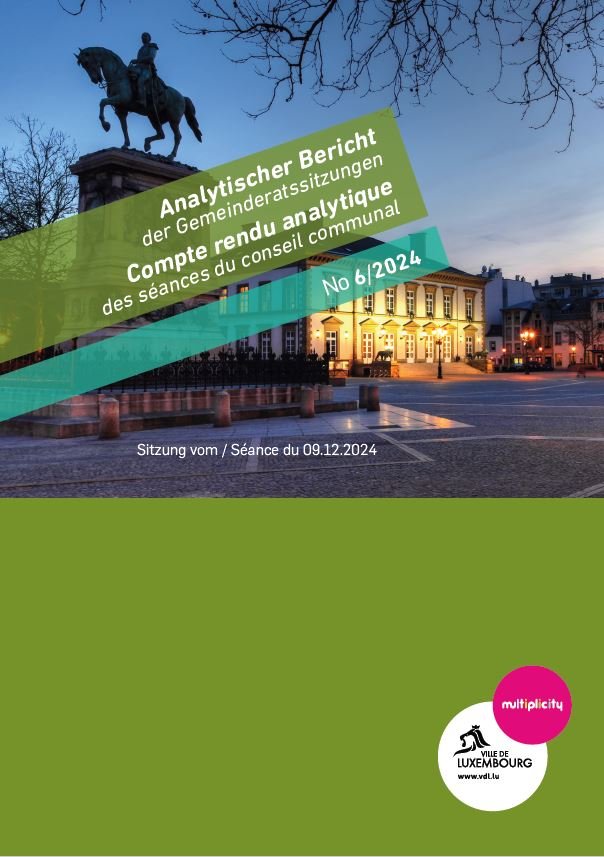
Keep reading

Questions asked by municipal councillors
Celebrations in 2025 to mark the 150th anniversary of public transport services in Luxembourg City
Question posed by Councillor Tom Weidig
On 28 June 1975, the City of Luxembourg celebrated the 100th anniversary of the city's public transport services. As part of the celebrations, the City hosted an exhibition featuring miniature models of buses and trams from the Tram and Bus Museum. Are there any plans for similar celebrations in 2025, to mark the 150th anniversary of the City of Luxembourg's public transport services? If so, what has been planned? Are the expenses required for such celebrations provided for in the 2025 budget?
Response provided by Alderman Patrick Goldschmidt
The first horse-drawn trams in Luxembourg City were brought into service on 21 February 1875. The service, which covered a distance of three kilometres, continued to operate until August 1908, when the horse-drawn trams were replaced by electric trams. The year 2025 will also mark the 50th anniversary of the new Tramsschapp (municipal bus depot) in Rue de Bouillon. We will be celebrating both anniversaries. The City has not made a specific budget allocation, but the relevant City departments – i.e., the Service Autobus (Bus Department) and the Service Communication et Relations publiques (Communications and Public Relations Department) – will be putting together an engaging programme of events. In 2025, in addition to the two anniversaries that have already been mentioned, we also plan to celebrate the extension of the tram service to the airport.
Also, I can assure you that there is no reason to be concerned about the future of the Tramsmusée. As you already know, we will be relocating the Service Autobus and the Service Véhicules et maintenance (Motor Vehicle and Maintenance Department) to new premises over the next 10 years. The Municipal Council and the relevant advisory committee will find suitable premises for the Tramsmusée.
The installation "L'homme qui mesure les nuages" by the Belgian artist Jan Fabre
Urgent question posed by Councillor Maxime Miltgen
Councillor Gabriel Boisante: As my colleague Maxime Miltgen is unable to attend today's meeting, I will be presenting the question that she tabled. As part of Art Week 2024, the City of Luxembourg provided funding for the exhibition of Belgian artist Jan Fabre's sculpture "L'homme qui mesure les nuages". Although this work has gained iconic status in the contemporary art world, in 2022 the artist was sentenced to 18 month in prison, suspended for five years, for sexual harassment and indecent assault.
Exhibiting this work of art is highly problematic and difficult to understand, and all the more so when one considers that, during Orange Week 2024 (25 November to 10 December), the City of Luxembourg affirmed its commitment to actively combating all forms of violence against women, including harassment and inappropriate behaviour. Of course, works of art often transcend their creators and, in the name of artistic freedom, which is considered a fundamental value, many well-known artists still continue to be venerated despite their unacceptable behaviour. So the issue here is not about banning this artist's work forever once he has served his sentence. However, it must be pointed out that, in supporting the exhibition of the work of art in question, the City is sending a highly questionable message. At the very least, the work could have been exhibited along with more contextual details in an attempt to prevent the artist from being glorified and to prompt a public debate on the ethical issues that this situation raises.
Mayor Lydie Polfer has already told the press that the City was not aware of the artist's conviction. Of course, one cannot be expected to always be aware of everything, but for an undertaking of this scale, one would expect a background check to be carried out. Moreover, it is hard to imagine that no one was aware of the artist's conviction, especially considering that it had been reported in several major newspapers, and that a member of the DP group had already commented on the case in "Le Quotidien" in 2018.
- Why did the City decide to support and exhibit Fabre's piece, despite his conviction, especially since such a decision seems contrary to the statements made during Orange Week?
- Is the City of the view that this initiative is compatible with its commitment to combat violence against women?
- What measures does the City intend to take to provide more contextual details about the work and prevent the artist from being glorified?
- Does the City plan to reverse its decision? If so, what steps does it intend to take to inform the public?
- Why was a foreign artist chosen on this occasion, when there are so many talented local artists who deserve promotion and financial support?
- What steps does the City intend to take to prevent incidents like this from occurring again in the future?
Response provided by Mayor Lydie Polfer
I took a stand on this issue as soon as I became aware of it, which was after Art Week had ended. It is surprising that no one mentioned this issue at the large press conference that was held one month before Art Week was due to start.
The City has supported Art Week since its inception, that is to say, since 2015. From 2015 to 2019, the event was held in Hall Victor Hugo. In 2020, during the pandemic, Art Week was held virtually. Since 2021, it has been held in a marquee set up in Champ du Glacis. At the time, the organiser had proposed to erect sculptures in various public spaces around the city. The City had no say in selecting the sculptures on exhibit, as it was neither the curator of the exhibition, nor a member of the Art Week Selection Committee. The Art Week Selection Committee is composed of representatives from international art galleries whose works are exhibited during Art Week. One of the aims of Art Week is to provide international art galleries with an opportunity to exhibit their works in Luxembourg. The City has been providing Art Week with financial support since 2021, and the amount has not changed since then. The City's support for Art Week is therefore support for the event as a whole, and not for a specific artist. The City has no say in selecting the artists whose works will be exhibited. This year, the Art Week Selection Committee went a step further by exhibiting works of art in a number of stores.
As I said earlier, I was not aware of this situation. If I had known beforehand, the City would have made it clear to the organisers that we are obviously against all forms of violence against women. I would remind you that, one week ago, we awarded the Anne Beffort Prize to two associations that are involved in combating violence against women. Other cities, such as London and Milan, continue to exhibit Jan Fabre's works. But that is not the point. If we had been aware of the conviction, we would have made our position clear. A decision was taken to remove the work in question the following week, and it was removed on the Monday.
We can broaden the discussion and talk about artwork and human behaviour. What can be done to prevent such incidents from occurring again in the future? Should we stop screening films by Roman Polanski or other directors, or films starring Gérard Depardieu or other actors? Should every stage actor be required to produce an extract from their criminal record before appearing onstage? But it must also be said that the sculpture in question was one of the most beautiful and interesting pieces on exhibit during Art Week. The name of the sculpture – "L'homme qui mesure les nuages" (The man who measures clouds) – says everything about what humanity believes it is capable of doing, even measuring infinity. In addition, the work dates back to 2019, that is to say, before the artist was convicted. The issue is complex, and because Art Week was immediately followed by Orange Week, it became even more sensitive. We will learn whatever lessons need to be learnt from this incident.
Permanent night shelter for homeless people
Urgent question posed by Councillor Christa Brömmel
The association Inter-Actions which has an agreement with the City of Luxembourg, is seeking permanent premises to house a night shelter and offices for its "Premier appel" (First Call) service. According to an RTL report, the search for a suitable site in the capital has been unsuccessful so far, either because it has met with opposition from local residents, or because of the provisions of the general development plan (Plan d'aménagement général – PAG).
- What is the City doing to find premises for a permanent night shelter?
- Which sites have been considered, and why has the College of Aldermen failed to convince local residents to change their mind?
- Is the College of Aldermen willing to provide Inter-Actions with permanent premises in Luxembourg City for a night shelter? If not, why not?
Response provided by Alderwoman Corinne Cahen
This is an issue that we are deeply concerned about. Even though the issue of authority should be secondary when it comes to people, the fact is that the "Premier appel" service is provided by the Ministry of Family Affairs (Ministère de la Famille) and not the City of Luxembourg. And since I was the Minister of Family Affairs for 10 years, I am very familiar with this subject. It is true that the "Premier appel" service will have to vacate its current premises in Route de Thionville. Another site was found, but it did not work out in the end. A feasibility study had not been carried out, and it turned out that the existing regulations prevented the site from being occupied by the "Premier appel" service. The matter was then immediately raised with the City of Luxembourg's Direction de l'Architecte (Architecture Directorate) to find out whether they had a building that was suitable for this purpose. They didn't.
To answer the last question straightaway: we provide as much help as possible. It is very important that "Premier appel" find new premises. The premises occupied by "Premier appel" are not only used as offices for street workers. They also house a few beds reserved for homeless people who are turned away from night shelters due to lack of space. The Caritas-run "Ulysse" shelter also keeps two beds available for such emergencies. In the winter, the demand for beds is not as high, thanks to the Ministry of Family Affairs' Wanteraktioun (Winter Action) scheme.
Although we work closely with both Inter-Actions and the Ministry of Family Affairs, our search for a suitable new site has proved unsuccessful so far. If anyone can propose a suitable site, I will happily forward their proposal to the Ministry of Family Affairs and Inter-Actions.
I would also like to take this opportunity to point out that the facilities installed in the lorry behind the church in Hollerich are also funded by the Ministry of Family Affairs. The City of Luxembourg simply gave permission to park the lorry there. The lorry is also used as a night shelter, but is reserved for people who are taken there by street workers. There are also other night shelters in Luxembourg City. A new night shelter is due to open in the northern part of the city. There is also a night shelter next to the Bistrot Courage. I hope that the "Ulysse" shelter will soon reopen, and that more beds will also be available there in the short term for emergencies.
So, although there is a lot going on, we still need to keep searching for a suitable site for the "Premier appel" service.
Question posed by Councillor Christa Brömmel
In the RTL report mentioned earlier, reference was made to several possible sites that could have been used to house the "Premier appel" service, but local residents were reported to have felt that using those sites for that purpose would be problematic. Wasn't the City of Luxembourg involved in this matter, for example by attempting to resolve the issue through mediation?
Response provided by Alderwoman Corinne Cahen
No, the City was not involved. I also learned that the site that was proposed in Hollerich could not be used.
Response provided by Mayor Lydie Polfer
I would also like to add that in another case, the search for a suitable site for a shelter was unsuccessful due to opposition from a homeowners' association.
Response provided by Alderwoman Corinne Cahen
It is important to stress that generally speaking, people living in the vicinity of Inter-Actions facilities have absolutely nothing to worry about. Inter-Actions manages its facilities very professionally and, to date, there have been no complaints.
Prevention of moral harassment at the City of Luxembourg
Question posed by Councillor François Benoy
According to the Luxembourg Chamber of Employees (Chambre des salariés), 18% of public-sector employees have experienced some form of "moral harassment" (bullying) at work. At the municipal level, accusations of moral harassment made by municipal employees in Contern are currently a hot topic. The response of the Minister of Home Affairs, who called for independent mediation, illustrates the lack of appropriate tools in the municipal sector.
As you may recall, the special independent commission for cases of moral harassment in the public sector is no longer active, since it was ruled to be unconstitutional in 2014 owing to the fact that it did not cover municipal employees. Within the City of Luxembourg, a new agreement on the prevention and management of sexual and moral harassment was signed with the staff delegation at the beginning of 2024.
- How many cases of moral harassment have been reported by City of Luxembourg employees in recent years? What action was taken? How many cases of moral harassment does the College of Aldermen believe have been actually reported, or have not been reported?
- What is being done to raise awareness of this issue among employees? What is being done to ensure that all employees receive the necessary information? What is the procedure that is followed when a case of harassment has been established? Does the College of Aldermen intend to do more to combat harassment?
- The anti-harassment campaign and victim support are organised under the supervision of the City's Direction Ressources humaines (Human Resources Directorate). Does the College of Aldermen believe that this department can provide professional and independent mediation? Does it encourage employees to report inappropriate conduct?
- Are the members of the College of Aldermen, in their capacity as deputies or Union of Luxembourg Cities and Municipalities (Syndicat des Villes et Communes luxembourgeoises – Syvicol) delegates, taking steps to have the relevant legislation amended, so as to close the unconstitutionality loophole and reactivate the special independent commission for cases of moral harassment as a truly independent body?
Response provided by Mayor Lydie Polfer
The City of Luxembourg has had an "Agreement on the Prevention and Management of Sexual and Moral Harassment" in place since 2010. That agreement was signed by the College of Aldermen and all the trade unions with representatives on our staff delegation. The agreement was renewed and updated on 4 March 2024, further to an assessment of practices over the past 10 years, conducted by the Psychological Support Officer and the Equal Opportunities Officer.
As part of the agreement, a Harassment Committee, chaired by one of the City's lawyers, was set up. The Harassment Committee receives complaints, assesses them, interviews the parties concerned, and proposes solutions. It also produces an annual report for the College of Aldermen.
Possible follow-up measures include: advice (8 cases in 2024, 3 cases in 2023, 9 in 2022, 4 in 2021, and 3 in 2020); mediation (4 cases in 2024, 3 cases in 2023, 3 in 2022, 3 in 2021, and 6 in 2020); action undertaken by the department concerned or the Direction des Ressources humaines (7 cases in 2024, no cases in 2023, 8 in 2022, none in 2021, and one case in 2020); and referral to the Harassment Committee (one case in 2024, no cases in 2023, 2 cases in 2022, one case in 2021, and no cases in 2020). "Action undertaken by the department concerned" can be, for example, transferring an employee to another department.
Employees are made aware of the issue through the City's intranet system and leaflets. For example, one of the leaflets describes the following situation: "Come on, let me give you a massage. You'll love it!" – Do you tell a friend or a co-worker? Or the following situations: "He's been sending her more ads for underwear again. – Who, his partner or his co-worker?" and "He always places his hand on mine. – Who, your son or your boss?" Courses and lectures are also offered.
Employees should be able to refer such matters to a body that they can trust completely. As regards the independence of this department, support for victims of harassment, and mediation, are provided by the Psychological Support Officer. This person is not attached to the Direction des Ressources humaines; they report directly to the College of Aldermen. Nevertheless, if a victim of moral harassment believes that the Psychological Support Officer is not sufficiently independent, external mediation can be arranged at the Mediation Centre.
We need to assess whether amending the legislation through the Chamber of Deputies is necessary. Personally, I am not a member if the parliamentary committee that deals with these matters. Regardless, it is an issue that is extremely important to us. The Psychological Support Officer has a lot of work to do: last year, she handled 131 cases (79 reported by men, and 52 reported by women), but in most of the cases, the issue was not moral harassment, but rather accidents, or related to stress, addictions, or conflicts with co-workers or superiors.
So, we do have arrangements in place, and we are ready to provide all employees with assistance and support, should the need arise. And we will continue to focus our efforts in this regard.
Question posed by François Benoy
Thank you very much for this information. I commend the fact that all these tools have been put in place, and that the City intends to pursue its efforts. I would just like to point out that a lot of the information is not available on the internet. The City may have other sources of information (for instance, our intranet system), but for outsiders, practically nothing can be found on moral harassment and the Psychological Support Officer. Internet users are directed to the leaflet mentioned earlier by Mayor Lydie Polfer, but this mainly addresses the issue of sexual harassment rather than harassment in general. More information on this issue should be published on the internet.
Response provided by Mayor Lydie Polfer
Every new City of Luxembourg employee is given a copy of the leaflet I mentioned earlier. Employees can find details of who or which department to contact on the back of the leaflet and on our intranet system.
Article 13, paragraph 3 of the Municipal Law establishes that each member of the Municipal Council, acting in their individual capacity, shall enjoy the right of initiative to add to the agenda drawn up by the College of Aldermen one or more proposals that they wish to submit to the Municipal Council.
Such proposals must be submitted to the Mayor in the form of a written reasoned request at least three days before the meeting of the Municipal Council.
